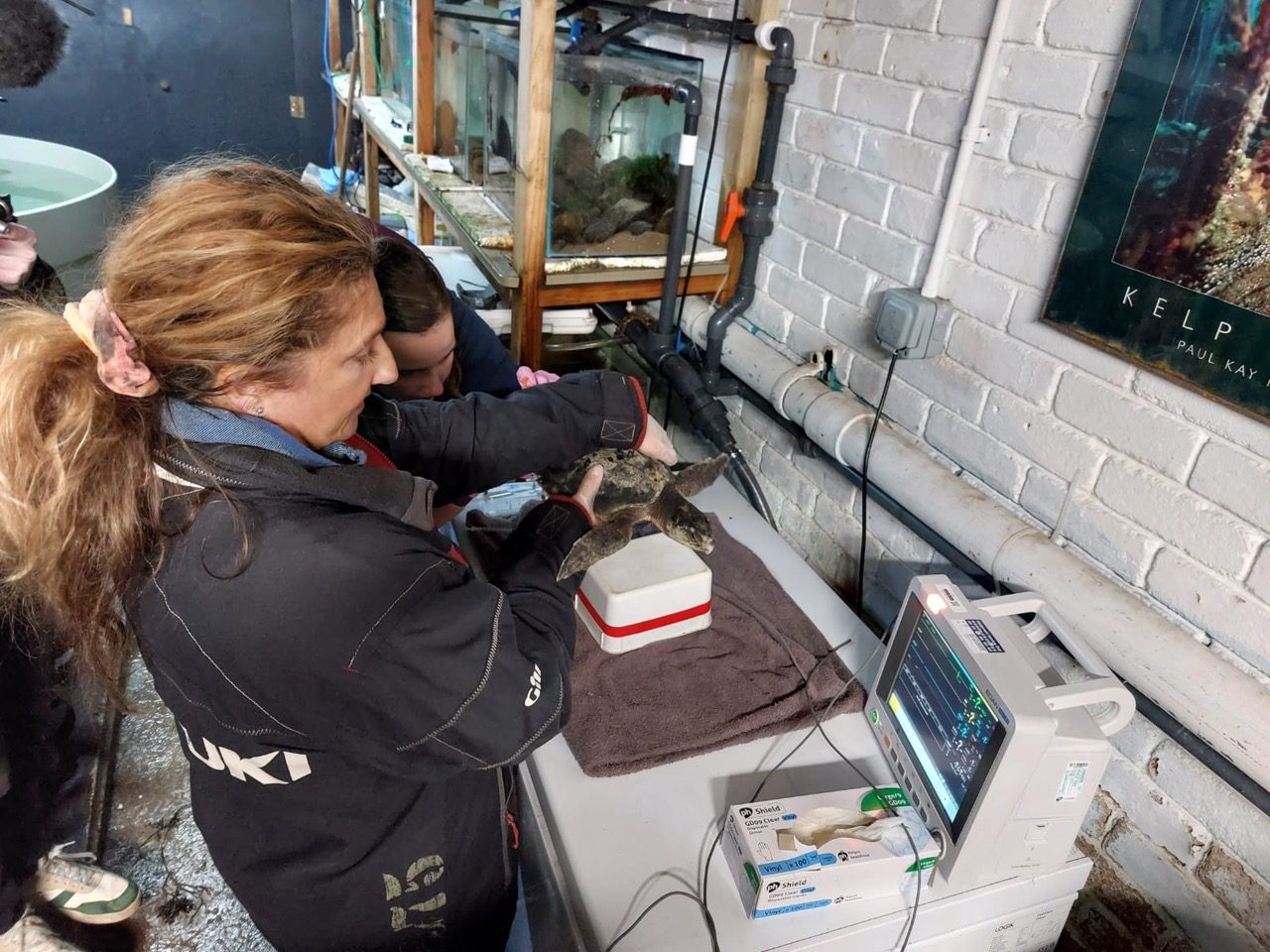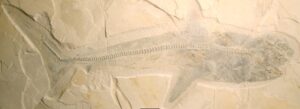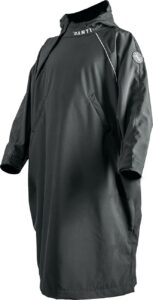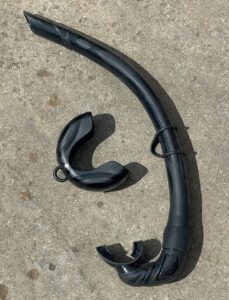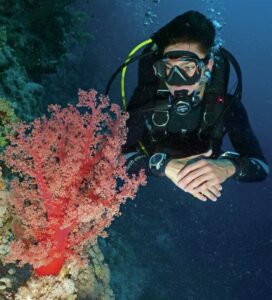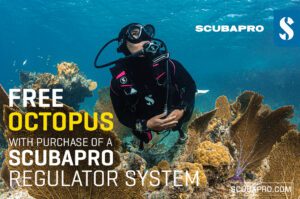Anglesey Sea Zoo is now caring for a juvenile Kemps Ridley turtle that was discovered on Rhosneigr beach on Wednesday (13 December) afternoon – its second, after the successful recovery and rehabilitation of Tally the turtle, who was released back into the wild just a few months ago.
At around 1.30pm, the Sea Zoo received a call from a member of the public who was walking their dog on Traeth Llydan beach in Rhosneigr on Anglesey. Their dog Meg had sniffed out a small turtle among the seaweed on the strandline and they realised that it was still alive, so it was immediately transferred to the Anglesey Sea Zoo for specialist intensive care.
Cold-stranded turtles can die during the process of being revived and the first 48 hours of care is absolutely critical, so the team have been initially focusing on ensuring that the new patient gets the best possible immediate care. It looks extremely promising that this little turtle could make a full recovery, but it is still too early to be certain.
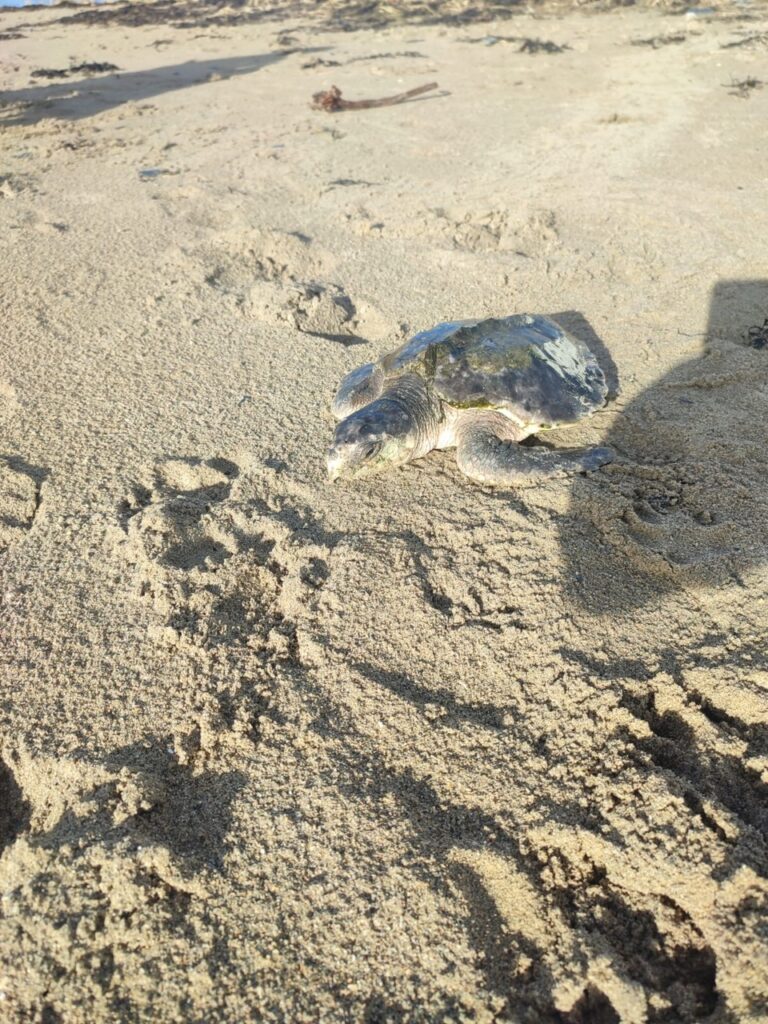
Upon receiving the call-out, the Sea Zoo immediately reassembled the purpose-built incubator which has previously enabled the successful revival of three other cold-stranded turtles, and when the turtle was brought in, it immediately received specialist medical care from local vet Celyn Marshall from Bennett Williams Veterinary practise in Gaerwen, Anglesey.
Upon initial examination, the little turtle was extremely dehydrated and had suffered some severe knocks and damage, suggesting that it has been quite badly battered and pummelled around during its recent travels, but it showed signs of being strong and is so far responding well to treatment.
The little turtle has been named ‘Rhossi’ after the beautiful and popular location of Rhosneigr on Anglesey, where it washed up. As it is a juvenile, it is much too young to be able to determine its sex.
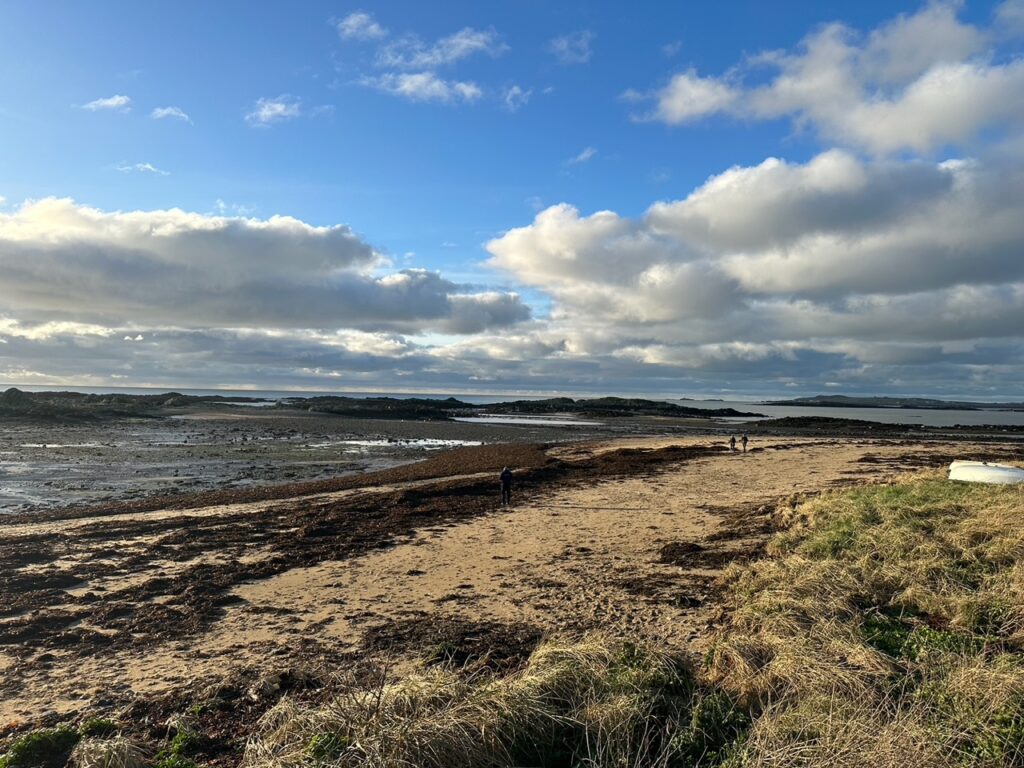
The Sea Zoo confirmed that the turtle is a Kemps Ridley turtle (Lepidochelys kempii), the world’s rarest species of turtle and it is critically endangered, protected under the Convention on International Trade in Endangered Species (CITES) regulations.
In the 1980s, the species was reduced to just a few hundred nesting females at only one site, Rancho Nuevo in Mexico. Since then, thanks to years of ground-breaking work, a second nesting site has been established in Texas.
Despite these ongoing conservation efforts, there are still only around 8,000 breeding females in the world today, making every individual extremely precious. Any Kemp’s Ridley that can be rescued and returned to the wild is a major victory, providing much-needed genetic diversity for a species which is at risk of extinction.
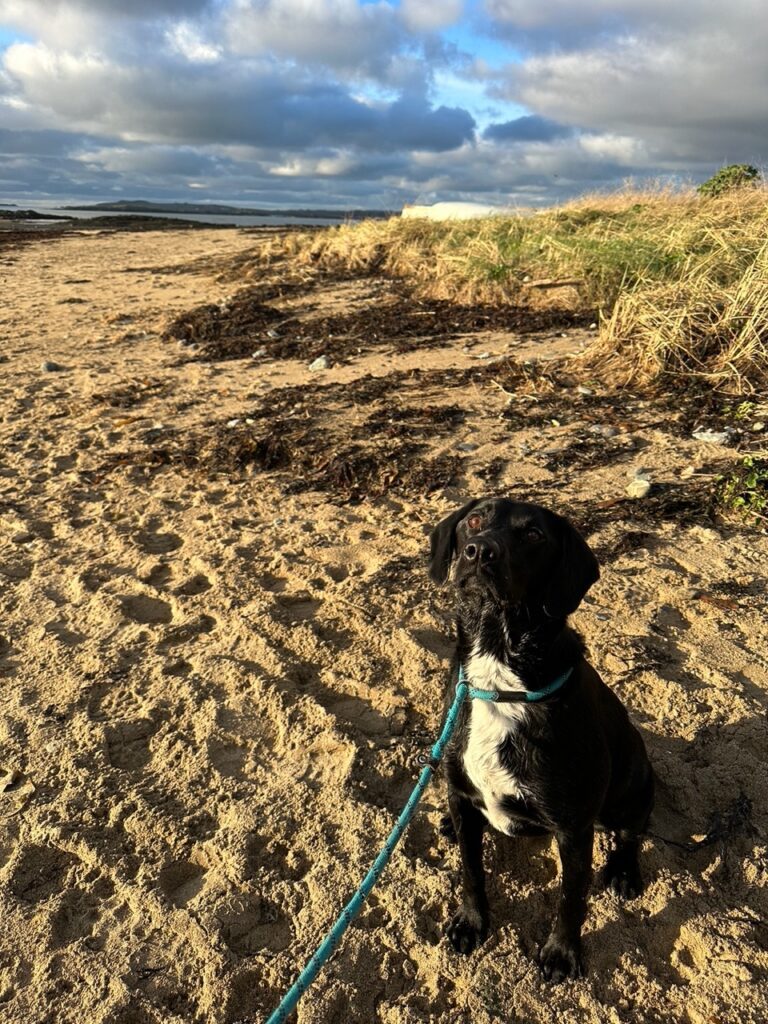
This is the second Kemps Ridley turtle to be rescued by the Anglesey Sea Zoo, whose team also rescued ‘Tally’ the turtle when she washed up on Talacre Beach in November 2021 and rehabilitated her for 20 months before flying her to Texas in August for re-release into the wild, which was covered by the BBC One Show.
Rhossi is currently undergoing initial critical care and careful rehabilitation, with two hourly checks through the day and night, involving gradual rehydration and raising of its ambient temperature over time. Although it is currently responding well to treatment, the turtle is in a serious condition from its ordeal and may not survive. Its progress over the next few days should give an indication of its long-term prospects.
However, it is undoubtably in the best possible hands as Anglesey Sea Zoo are recognised as experts in UK stranded tropical turtle rehabilitation following the successful rehabilitation of ‘Menai’ the Olive Ridley turtle who washed up in November 2016 after stranding at the bottom of the drive in the Menai Strait, the aforementioned ‘Tally’, and ‘Tonni’, the little loggerhead who washed up in January this year and is awaiting imminent return to the Canary Islands for release.
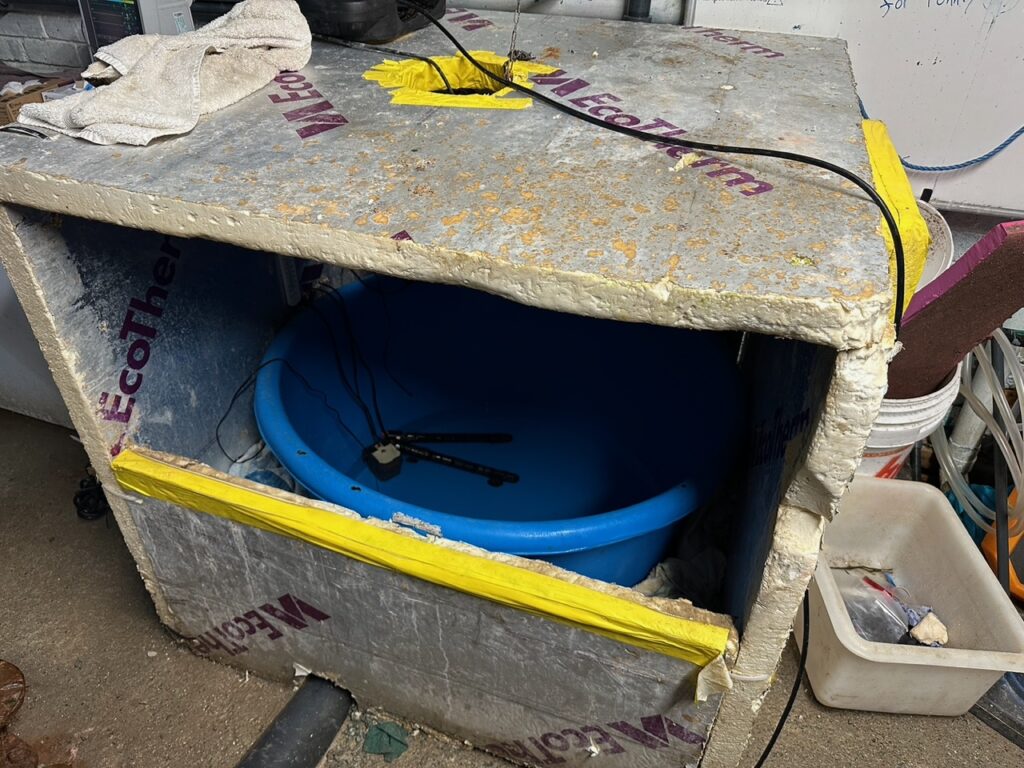
Tropical turtles such as the Olive Ridley and Kemps Ridley are more commonly found in temperatures of 25-30oC and at this time of year, our local sea temperatures at approximately 9oC are far too cold for these tropical species to tolerate.
This juvenile turtle will have lost its way whilst journeying through warmer seas further south in the Atlantic, probably due to the strong winds we experienced last weekend, as sea turtles are known to travel vast distances.
The cold and windy weather here is unsustainable for such species of turtles to survive, and it is lucky that it was found alive, as many of the tropical turtles washed up around the UK are found dead.
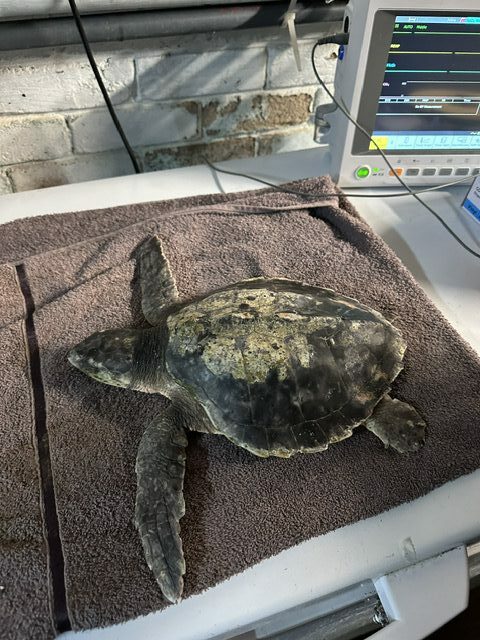
It is not the first time that a juvenile Kemps Ridley turtle has been washed up in the UK, there have been over 30 instances of live juveniles stranding in the British Isles but of these only five have been successfully rehabilitated and re-released.
Due to the breeding sites being directly south across the Atlantic from here, and the gulfstream travelling clockwise from south to north, young turtles in particular can easily become caught up in a colder current and get carried off course as a result.
It is becoming more common for mass strandings of juvenile Kemps Ridley turtles to occur on the eastern coast of the USA after stormy weather, and there are rescue centres there dedicated to their recuperation and release.
Frankie Hobro, Director and Owner of the Anglesey Sea Zoo says: “We are extremely excited to have a second Kemps Ridley turtle wash up alive on a local beach, and very grateful to Meg for finding it!
“All four of our rescued turtles were discovered by dogs being walked on the beach and we are urging dog walkers to please keep an eye out for stranded tropical turtles, particularly during the winter months, on the strandline among seaweed. These turtles are often extremely difficult to spot – but dogs will sniff them out.
“Although they may appear dead they can often be revived with the correct, immediate specialist care. As a critically endangered species every individual Kemps Ridley turtle is precious. We hope Rhossi will recover and will eventually be flown back to Texas as Tally was, and re-released back into the wild in the Gulf of Mexico to contribute to the ongoing survival of its species.”
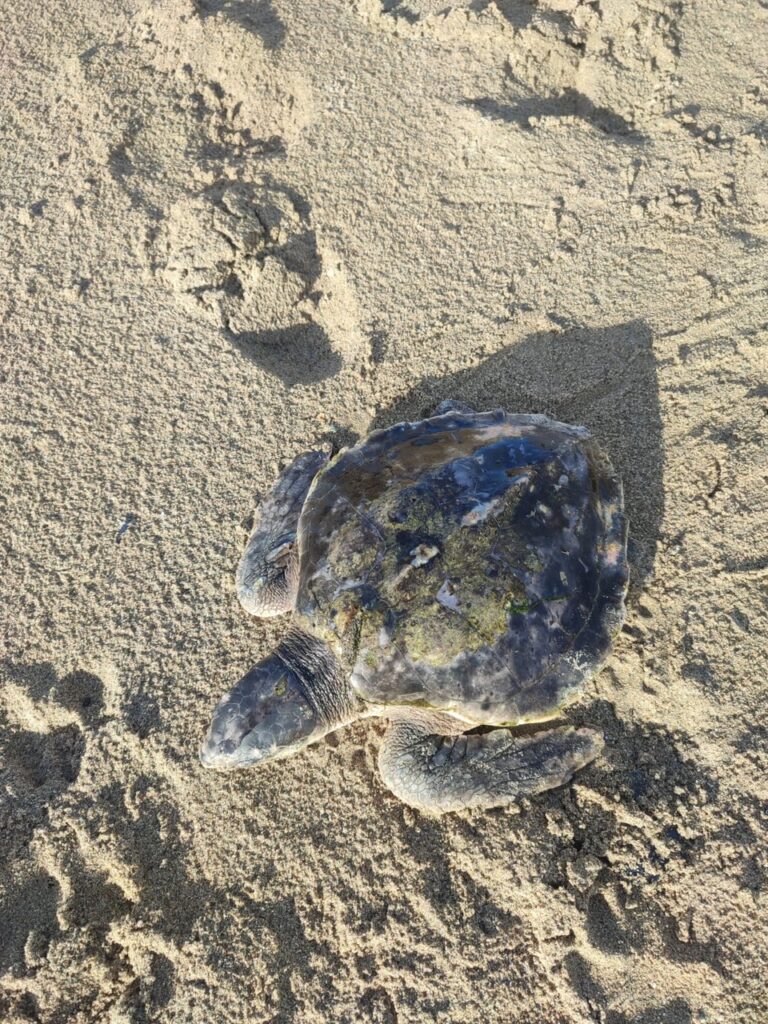
Anglesey Sea Zoo are recognised as experts in UK stranded tropical turtle rehabilitation and are extremely proud of what they have achieved three times now with successful turtle rescue and rehabilitation with very basic makeshift facilities.
Knowing that turtle strandings in the UK are becoming more common every year, due to rising sea temperatures and an increase in violent Atlantic storms in the autumn and winter, they are fundraising for a purpose-built turtle rescue centre at the Sea Zoo, as currently this does not exist anywhere in the UK.
They want to give every turtle that gets washed up alive the best possible care, and the best chance of making a full recovery and being re-released into the wild, whatever species it is and wherever in the world it needs to be repatriated to. A proper facility will enable this, as they now have the experience and techniques required rescue and rehabilitate cold-stunned turtles of all species and the contacts within the global turtle conservation community to ensure that every turtle gets released back into the wild.
The Anglesey Sea Zoo believes that large migratory marine animals such as sea turtles belong in the wild. As rescued, wild turtles awaiting re-release, both Rhossi and Tonni cannot be kept on public display due to CITES regulations, but they will continue to be cared for behind the scenes in the specialised and controlled environment which they need to be properly treated and rehabilitated.
Stranded turtles often appear dead when they are, in fact, in a state of torpor, or physiological ‘shut down’ due to the low temperatures, and if this is the case they may be revived and can make a full recovery under the right conditions if they are rescued quickly.
If you find a turtle do not assume that it is dead even if it appears to be, and do not touch it or try to return it to the water, as this is likely to kill it. Instead immediately report it to Marine Environmental Monitoring (MEM) 0800 6520 333, or the Anglesey Sea Zoo directly (01248 430411) so a specialist can come to collect it.
